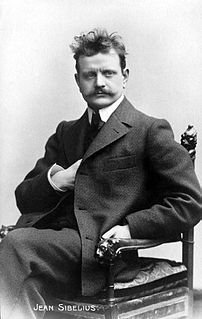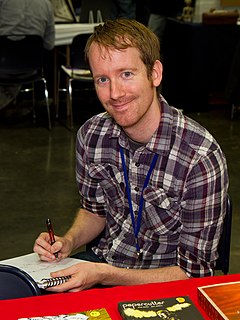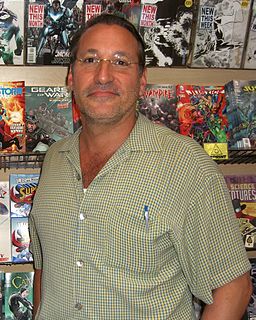Цитата Алана Мура
Среда комиксов имеет некоторые необычные черты, которые делают ее очень отличной, поскольку она сочетает словесное повествование с визуальным, что дает гораздо более богатые возможности передачи информации.
Связанные цитаты
Я не думаю, что комиксы используют культовые формы — или им это не нужно. Но это делает их еще более «крутыми», если я понимаю идею. Нужно быть очень вовлеченным, чтобы заставить комикс работать. Сигналы должны быть декодированы как на вербальном, так и на визуальном уровне одновременно, и читатель также должен выполнять большую когнитивную работу между панелями. Комиксам определенно нужен заинтересованный читатель.
Я неплохо режиссировал эпизоды на телевидении, но режиссировать фильм намного сложнее. И ответственности гораздо больше, потому что среда во многом является режиссерской средой. Телевидение в гораздо большей степени является средой продюсера и сценариста, поэтому в большинстве случаев, когда вы режиссируете телешоу, у них есть цветовая палитра на съемочной площадке или визуальный стиль и динамика, которые уже были предопределены, и вы просто должны следовать правилам. .
Фильм — это темпоральная среда в той же мере, что и визуальная среда: вы играете со временем, и у вас нет той возможности, чтобы кто-то мог сделать паузу дома. Это такая фундаментальная часть того, что делает кинопроизводство захватывающим для меня. У меня нет такого большого интереса к какой-либо другой среде. Мне просто нравится управление.
Конечно, комиксы требуют от читателя больше усилий, чем фильмы или телевидение. Я всегда узнаю что-то новое, что можно сделать с помощью комиксов, что не сработало бы ни в каком другом носителе, и часто они требуют обработки большого количества плотной информации. Конечно, фокус в том, чтобы сложное казалось легким и спонтанным.
Я уже говорил это раньше, но я не люблю ставить подписи в своих комиксах. Я чувствую, что для меня они становятся костылем, способом игнорировать тот существенный факт, что наша среда является визуальной средой, и величайшее удовольствие, которое можно извлечь из комиксов, — это то, как истории могут быть рассказаны с помощью картинок.
В ранних комиксах вы видите удивительную неловкость и причудливые рассуждения в сюжетной линии, и это потому, что комиксы еще не были изобретены. У них не было формата, которому они могли бы следовать. Они просто выдумывали это. Поэтому я довольно часто пытаюсь включить такую неловкость в свои комиксы, что странно. В некотором смысле, я не могу быть таким неловким, как хотелось бы. Но я действительно думаю, что это один из аспектов, в котором мои комиксы необычны, потому что я иногда стараюсь, чтобы художественные работы выглядели плохо.
Я действительно думаю, что некоторые игры являются произведениями искусства, хотя их среда скорее визуальная, чем словесная. И игры, и романы позволяют читателю/игроку стать главным героем в театре воображения. Оба строят миры. На мой взгляд, большая разница между игрой и романом заключается в структуре повествования. Коммунальные ролевые игры имеют открытый план без конца. Роман — по крайней мере, тот, который пишу я, — имеет замкнутую структуру с началом, серединой и концом. Мне нравится эта закрытая структура, и я чувствую, что могу сказать с ней больше.






































